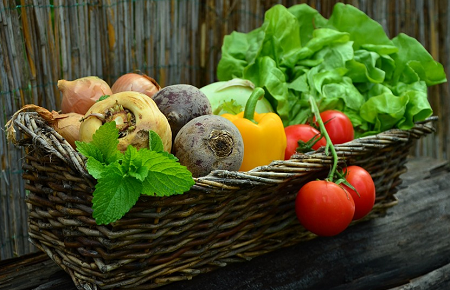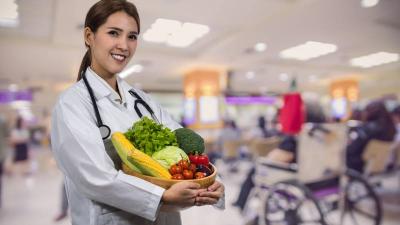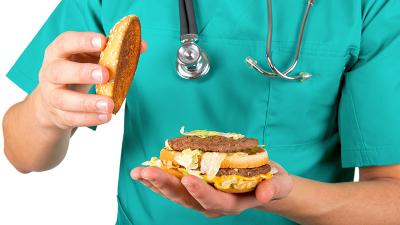Enough Pink, Now Let’s Get Serious

On Oct. 26, the World Health Organization gave women, men, and children a beautiful gift by letting us all know that avoiding processed meats will cut our cancer risk. The link between bacon, sausage, ham, etc., and several forms of cancer had been known for years in scientific circles, but the WHO announcement made it official. The debate was over. This really, really works. Get them out of your life, and your risk drops.
“Well now that’s done: and I’m glad it’s over,” wrote T.S. Eliot in The Waste Land. I think of those lines every November, when Americans put away their pink T-shirts, pink ribbons, and pink slippers and forget about breast cancer for another year.
Few of the marchers in pink tutus and wigs know that Breast Cancer Awareness Month was launched in 1985 by Imperial Chemical Industries and served to pump up the market for anticancer drugs. Since then, the month has become a cash-register-ringing, credit-card-swiping distraction from what really would help stem the epidemic.
The National Cancer Institute reports that alcohol—even one drink per day—increases breast cancer risk. So why not book a manicure and pedicure at Seagate Hotel & Spa in Delray Beach, Fla., and sip a “pink lady” martini? It’s only $100, and 10 percent goes to the American Cancer Society.
NCI also explains the link between obesity and breast cancer. So over the years, we’ve celebrated with KFC’s pink bucket full of chicken and Bon Appétit’s Pan Seared Strip Steak with Red-Wine Pan Sauce and Pink-Peppercorn Butter—don’t overcook it; that steak should stay pink—and Lemon-Raspberry Cupcakes. The recipes come online with free pop-up advertisements for President Cheese.
This year should have been different. On Oct. 26, the World Health Organization gave women, men, and children a beautiful gift by letting us all know that avoiding processed meats will cut our cancer risk. The link between bacon, sausage, ham, etc., and several forms of cancer had been known for years in scientific circles, but the WHO announcement made it official. The debate was over. This really, really works. Get them out of your life, and your risk drops.
The response from many corners was whining and panicked. “Are you trying to tell me what to eat!?” Even some medical experts called for no more than moderation. On the PBS NewsHour, a Harvard physician said, “I don’t think that it should warrant an overall change in people’s lifestyles at this point.”
Let’s take a lesson from the fight against lung cancer. Years of study showed that smoking, asbestos, and radon cause the disease. The answer was not to put on a T-shirt, walk with a sign, make a donation, or do anything other than stop the dangerous exposures and encourage friends and family to do the same. And the campaign has worked.
For breast cancer, we have learned a lot about the causes. But if we don’t put that knowledge to work—if instead we slip on our pink socks, zip up our pink jackets, and look at cancer through our pink-colored glasses—we make a mockery of the lifesaving findings that were painstakingly elucidated.
“April is the cruelest month,” Eliot wrote. Perhaps that honor should go to October.









